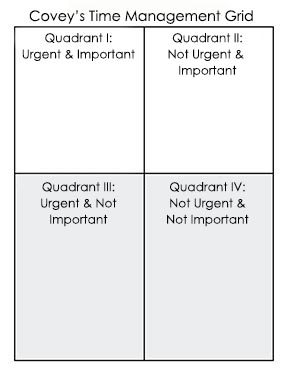Have you ever thought about starting an online shop? Certainly you've heard stores about people…

Five Ways To Leave Work At Work
How often do you find yourself thinking about work after work hours? If your answer is regularly, then letting go of work is a never-ending challenge.
You maybe familiar with that uneasy feeling when something from work pops into your head and you immediately stop what you’re doing to jot down a note. These unfinished work tasks—a known nemesis—often occur after hours and are shared by many hard working people.
So How Do You Mentally Shut Work Off?
One way to leave work at work is to fill your day with small accomplishments so you feel productive when your day is complete. Don’t fall into the habit of focusing all your energy on one task, this will leave you drained and stressed at the end of the day. Instead, divide your day by focusing on a few tasks, giving yourself a higher chance of completing those must-do items.
Then do this. Before you leave work take a couple of minutes to write down your next day’s tasks. This will clear your mind of work items allowing you to enjoy your free time. Make this a habit and those work reminders will become less intrusive out of work.
Below are five more tips to help leave work at the office:
 1) Quadrant Matrix. One of the best resources is Stephen Covey’s Time Management Matrix. You may know Stephen Covey from his book, The 7 Habits of Highly Effective People. Covey’s matrix is divided into four quadrants which list tasks in order of importance. By tracking and completing tasks you set reasonable expectations for yourself, and can easily measure your day’s duties. Tasks unfinished are moved to the next day’s list. This allows you to feel more organized and in control while leaving those work priorities at your desk.
1) Quadrant Matrix. One of the best resources is Stephen Covey’s Time Management Matrix. You may know Stephen Covey from his book, The 7 Habits of Highly Effective People. Covey’s matrix is divided into four quadrants which list tasks in order of importance. By tracking and completing tasks you set reasonable expectations for yourself, and can easily measure your day’s duties. Tasks unfinished are moved to the next day’s list. This allows you to feel more organized and in control while leaving those work priorities at your desk.
Tip: Be realistic when making your list. Shorter lists containing three or four items for the day are more achievable than lengthy lists. Begin by managing your expectations and you’ll feel more accomplished and in control of your day.
Tip: When making your list take five minutes to add how long you think your tasks will take. By putting a time estimate on these tasks and adjusting accordingly you’ll quickly discover how accurate these estimates are. When you complete these tasks, cross them off and carry over any unfinished items to the next day’s list.
For more information visit Covey’s Matrix.
2) Find an Outlet. Everybody needs an outlet from the stresses of everyday life. Whether it’s a hobby, exercise, or meeting up with friends or family, find a way to decompress by scheduling these activities to take your mind away from work.
3) Make Habits Routine. Whenever you try something new, sometimes it works and sometimes it doesn’t. Making an effort to do the same tasks repeatedly forms a habit. When your work day ends and you leave the office, make every effort to avoid reading email or making business phone calls after work—allowing you to reclaim your valuable time. When you leave work, listen for the click you hear when the door shuts behind you. That click means “time off” from work and you’ll deal with work tomorrow.
4) Organize Your Space. Clutter and a piles of paperwork only adds to the stress when you leave at the end of the day. Take the time to tidy up the last 15 minutes before you leave work, this allows you to leave relaxed and more prepared for tomorrow.
5) Cut Back On Overtime. Eliminate any distractions that keep you from completing your tasks during the day, and make the changes necessary to be more efficient at work. The biggest obstacle of efficiency are long meetings and social interactions. Be clear about setting and meeting deadlines with a team or yourself. When distractions arise try and give yourself a reasonable time to resolve any urgent matters, and any non-urgent matters go back on your list.
Keeping Work At The Office
Work reminders pop into our heads when we feel disorganized and unproductive. By taking the time to work through your list of projects, you’ll find completing those tasks will be efficient. It will even make you feel more organized when information and projects can be found quickly. When you implement these tips as suggested above, you’ll feel more productive and mentally focused to “shut off” that switch in your head that constantly reminds you of work.
Bonus Tip
Color Your Calendar
Use a digital or paper calendar (or both) to aid you in juggling your work tasks and free time. For example, use your calendar and color options to label family, work, and recreational activities. At a glance, you’ll see both personal and work activities and know when it’s time to increase one area of your life to balance work and family.




Comments (0)